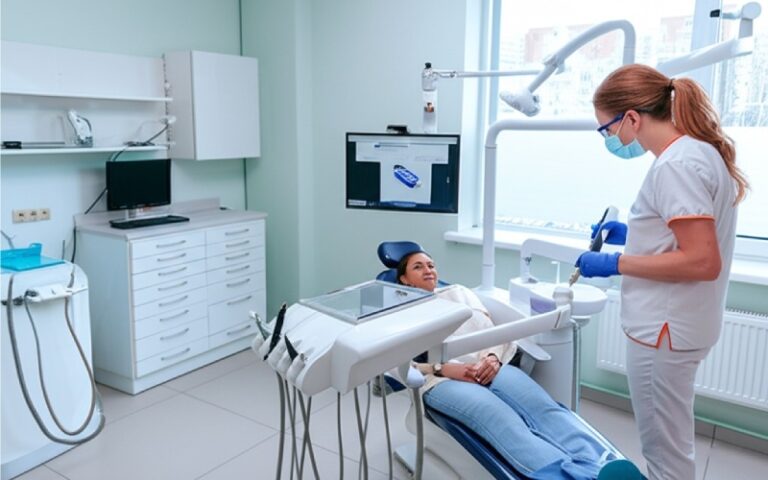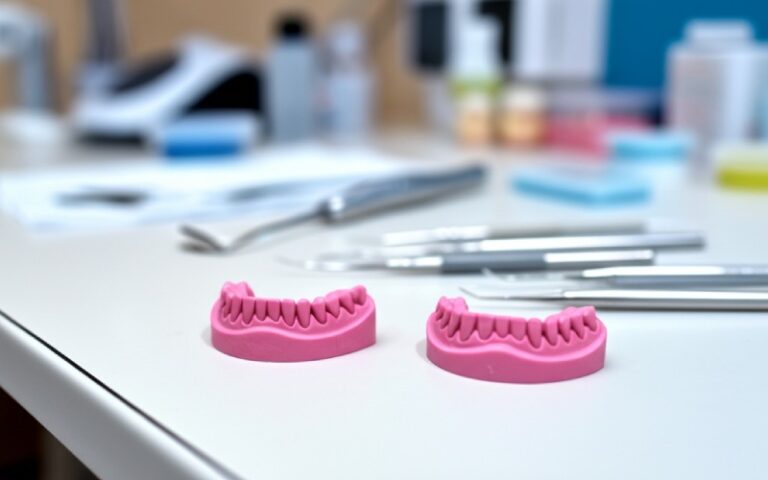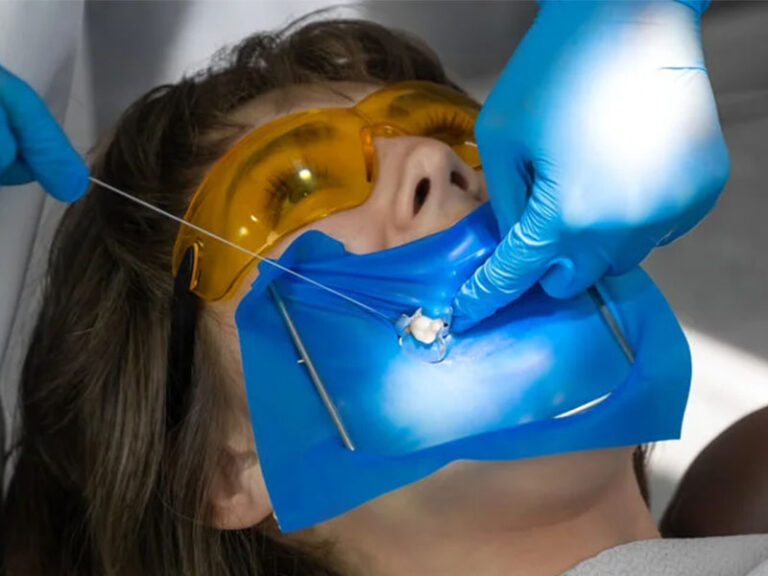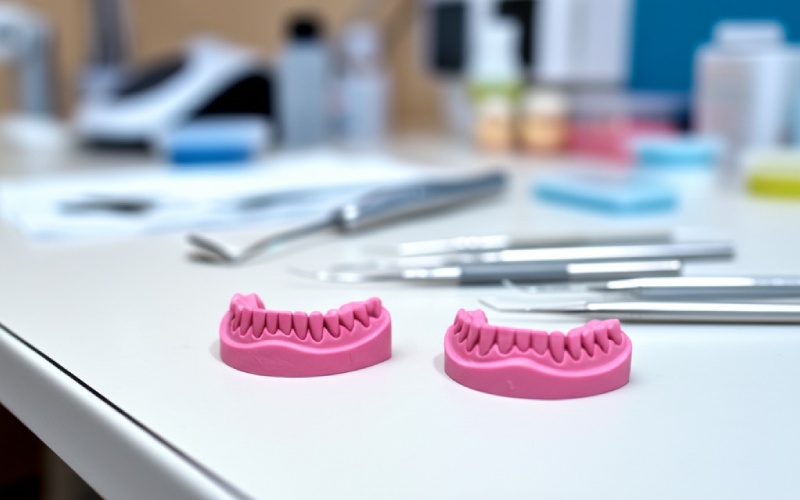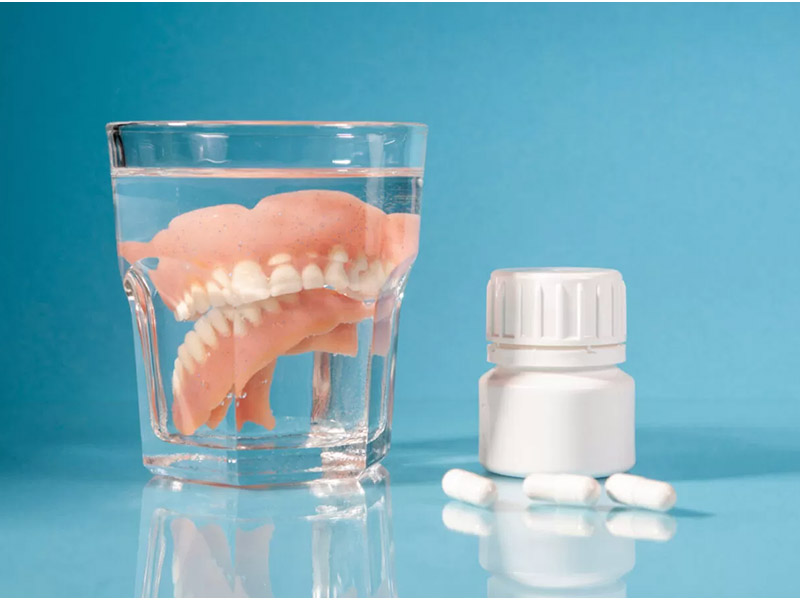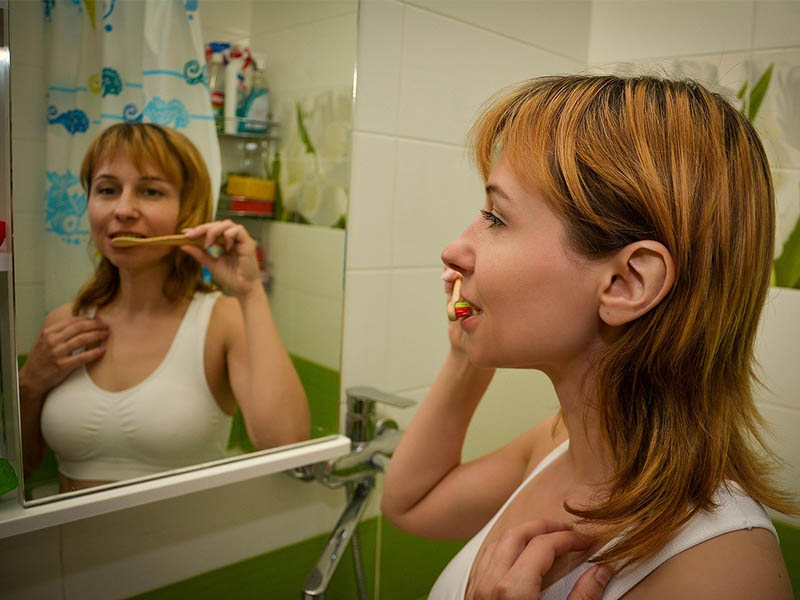
Why Should We Continue Choosing Chinese Dental Labs Amid the US-China Tariff War?
Table of Contents
I. Tariff War Context: Short-Term Cost Fluctuations vs. Long-Term Value
In April 2025, the U.S. escalated tariffs on Chinese imports, raising comprehensive rates to 54% (up to 104% for certain goods), with dental products included in the expanded list. While this policy ostensibly increases procurement costs for American clients, a deeper analysis reveals that Chinese dental laboratories remain competitive due to technological innovation, operational efficiency, and unmatched supply chain resilience.
Key Data Comparison of US-China Dental Trade
| Indicator | China’s Exports to the US (2024) | US Import Dependence on China |
|---|---|---|
| Dental Product Exports | ¥1.757 billion RMB | Low-Value Consumables (e.g., gloves) |
| YoY Growth Rate | 30% | APIs (e.g., penicillin, ibuprofen) |
| Core Export Technologies | Digital Dentures, Clear Aligners | High-End Device Components (e.g., CT tubes) |
| Data Sources: China Customs, OEC Database. |
II. Four Pillars of Chinese Dental Labs’ Competitive Edge
1. Economies of Scale & Cost Optimization
Despite tariff-induced cost pressures, China’s centralized dental supply chain and automation advancements ensure lower per-unit costs. For example, 3D printing adoption has boosted denture production efficiency by 40%, while bulk purchasing reduces material expenses. Leading labs further mitigate tariff risks by leveraging overseas facilities in Southeast Asia and Mexico for transshipment.
Key Metrics:
- Production Speed: Chinese labs deliver orders in 7-10 days, outperforming US/EU suppliers (15-20 days).
- Cost-Sharing Models: Long-term clients secure volume discounts or offset tariffs through design optimizations.
2. Technological Leapfrogging & Regulatory Compliance
China’s dental sector has evolved from “contract manufacturing” to innovation leadership. In clear aligner technology, Angelalign (a Chinese brand) matches global standards with FDA-approved AI occlusion analysis tools. Over 90% of Chinese labs hold ISO 13485 and FDA certifications, guaranteeing compliance with US medical regulations.
Case Study:
- Align Technology: The US-based Invisalign pioneer set benchmarks with its ClinCheck system, yet Chinese peers now achieve comparable precision at lower costs.
- Localization Momentum: China’s 34% retaliatory tariffs on high-end US medical devices have accelerated domestic R&D breakthroughs in MRI and CT components, elevating supporting dental technologies.
3. Agile Supply Chains: Crisis-Tested Reliability
During the pandemic, China’s medical supply chains proved unparalleled responsiveness (e.g., surging PPE exports). Today, labs deploy overseas warehouses and localized inventories to ensure stable deliveries. For instance, some reroute exports via Vietnam, even as the US imposes 46% tariffs on Vietnamese goods, demonstrating adaptive risk diversification.
4. Collaborative Innovation: Beyond Transactions
Chinese labs are transitioning from suppliers to strategic partners. By sharing patient occlusion data to refine designs, they reduce remake rates by 15-20%, cutting long-term hidden costs. Joint R&D initiatives (e.g., co-developing customized aligners with US clinics) further enhance client profitability and loyalty.

III. The Tariff War Reality: China’s Irreplaceable Role in Global Healthcare
The Trump-era “manufacturing reshoring” agenda clashes with stark dependencies:
- API Reliance: 80% of US penicillin and 50% of ibuprofen APIs originate from China.
- Consumer Burden: Peterson Institute studies show 90% of tariff costs fall on US households, increasing annual expenses by $8,147.
This interdependence underscores China’s enduring value. Mindray Medical, for example, dominates 70% of the US patient monitor market, validating China’s technical credibility.
IV. Strategic Imperatives for US Clients
- Cost-Efficiency: Even with tariffs, Chinese products offer superior value (Figure 1).
- Tech Synergy: AI-driven solutions elevate clinic efficiency and patient outcomes.
- Risk Mitigation: Diversified supply chains buffer geopolitical disruptions.
Figure 1: US-China Dental Product Price Trends (2024-2025)
| Period | Chinese Products (Post-Tariff) | US Domestic Products |
|---|---|---|
| 2024 Q1 | $100 | $150 |
| 2025 Q1 | $125 | $160 |
| Data Sources: Tianfeng Securities, HaoDeYa DataLab. |

V. Spotlight: ASD Dental Lab — Your Global Partner
Amid tariff uncertainties, ASD Dental Lab remains committed to delivering precision, speed, and compliance for US clients. Our strengths include:
- Cutting-Edge Technology: Full digital workflows (CAD/CAM, 3D-printed dentures) with <0.05mm accuracy.
- Rapid Turnaround: 7-day global delivery standard; 48-hour expedited service.
- Regulatory Assurance: 100% FDA and ISO 13485 compliance, full traceability.
Tariffs are temporary; trust and innovation endure. Choosing ASD means partnering with a resilient, future-ready ally in the global dental landscape.
Final Note
The tariff war reshapes trade dynamics but also propels China’s dental sector from “manufacturing hub” to “global rule-shaper.” For US clients, today’s choice will define cost control and technological leadership for the next decade. Chinese dental labs stand ready to co-author this future — with unwavering value and vision.

